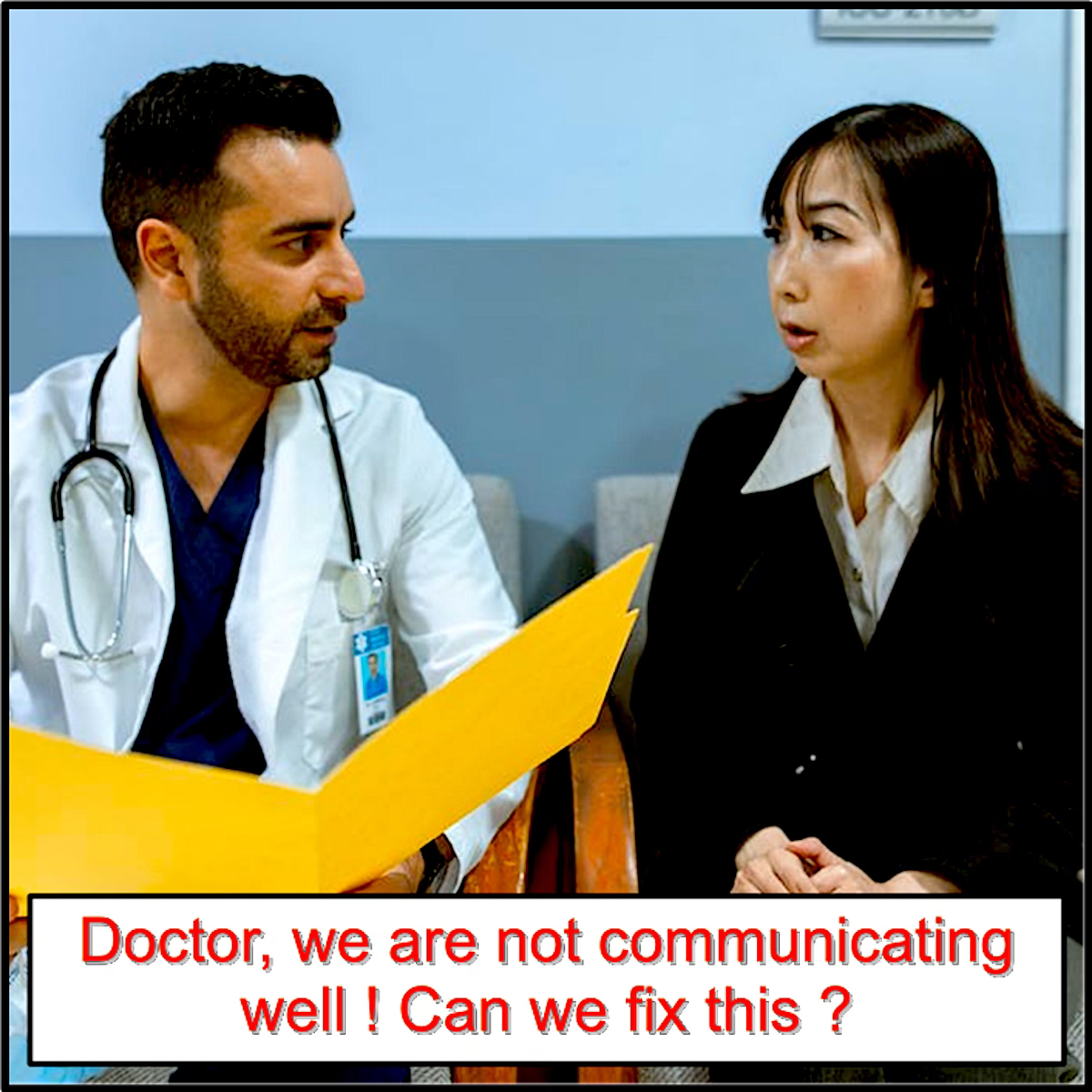Doctor, We Are Not Communicating Well!
“And though the rules of the road have been lodged -It’s only people’s games that you got to dodge. But it’s all right, Ma - I can make it.”
- BOB DYLAN
A major complaint from many is poor communication with their doctor. Some say their doctor does not take enough time with them. Others say their doctor does not seem interested in communicating with them. The result is a growing gap between doctor and patient. Most people find medical care difficult to understand. Poor communication with the doctor only amplifies fear and puts a damper on working together.
Adding to this confusion is the ubiquitous Internet. Many computer-literate people try to learn medicine online, going from one website to another. Others use the Internet to second-guess their doctor’s choices on medications, surgery, or other aspects of medical care. If their doctor will not explain their health problems and treatment alternatives, who can blame people for going anywhere they can for information?
We also should remember that communication is a two-way street. Many patients refuse to communicate with their doctor. Some patients are intimidated by the doctor, or just plain nervous; they freeze up when their opportunity with the doctor comes. Others are sure they already know everything about their health status and merely need to confirm their thoughts with a quick prescription. Neither extreme is helpful.
A good doctor-patient relationship requires both parties to be willing partners. Both doctor and patient need to appreciate the need they have for each other. They must desire a positive relationship, and then work together for better communication. Returning to the ideas of R. Buckminster Fuller, we see the need in medical care to communicate both clearly and cleanly.
The Need for Harmony
Considering the many sources eroding the quality of medical care, we see a common problem. I submit the problem is a lack of harmony. The dictionary defines harmony as “a situation in which there is agreement.” Looking at business pressures, poor doctor-patient relations, overspecialization, and scientific confusion, we see little harmony. These disparate problems cause nothing but disharmony in the present healthcare system.
Harmony is something that today's medicine - and today's world - needs very badly. Critics of the medical system complain about the skyrocketing cost of medical care – and justifiably so. These concerns are driving cost reduction measures like second opinions, prior approval for hospital admissions – and healthcare reform at the national level. All these measures are, at their base, attempts at restoring harmony to the healthcare system.
Everyone seems fixated on the problem of who is going to pay for medical care. By contrast, there is little attention on how we are practicing medicine. This is a fundamental mistake, and I believe this error is causing everyone to miss the real problem. In fact, I suggest that the high cost of medicine is not even the root cause of medicine’s problems. Rather, it is the result of faulty assumptions about health and disease. The fundamental lack of harmony is not caused by economics; the lack of harmony causes the economic problems.
This is a novel idea. Is it possible that we are fixated on the wrong problem? Could it be that economic issues are not the problem at all? Could changing our perceptions improve medical care? Perhaps we are operating under the wrong paradigm – the wrong set of assumptions about who we are, and what we are doing? Stay with me and we will explore this more completely.





